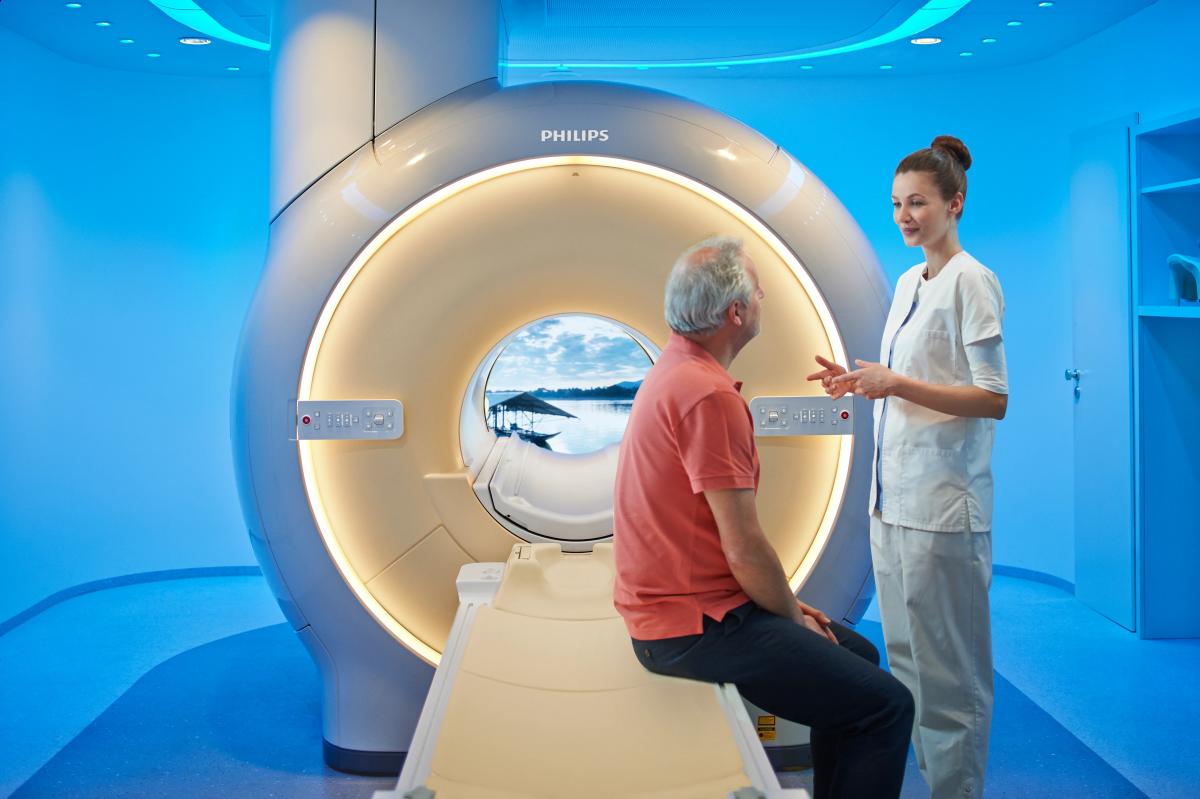Customer Information

Innovations for reliable Healthcare services
How do I prepare for MRI Scanning?
- Please get all X-Ray, Sonography, CT and MRI films and other documents, which will help in accurate analysis of new scans
- Please bring an accompanying relative or friend
- Please inform the centre staff or doctor, if you have any metallic or electromagnetic items in or on your body
- Please inform the centre staff or doctor, if you are pregnant or if you think you are pregnant
- Wear comfortable and loose-fitting clothing; but keep in mind that metal objects must be avoided in or near the region where you are going to be scanned
How to prepare for a Lab test?
Patients need to be prepared according to the tests in some specific ways to ensure best results.
Fasting morning specimen is preferred for majority of tests performed on serum, plasma or whole blood.
Fasting Plasma Glucose:
Fasting period of 8 – 10 hrs is required
Post Prandial Plasma Glucose(PP):
Blood specimen collected 2 hrs after food intake. Adequate breakfast is to be eaten after giving fasting sample. If the patient is diabetic and is on medication, he/she should take the medicines, as usual.
Preparation for Glucose Tolerance Tests
- Discontinue when possible medications that could affect GTT, for 3 days
- Perform in the morning after 3 days of unrestricted diet and activity
- Perform only in ambulatory subjects
- 10-16 hours of fasting recommended.
- The tests should begin between 7- 9 AM
- The subject should be seated between the samples
- Smoking is to be avoided between samples
Oral Glucose Tolerance Test:
The two samples are taken at following intervals
- Fasting. Then 75gm of glucose in 300ml of water is given to the patient. The load should be ingested over 5 minutes.
- 2Hour, after glucose load.
Gestational Glucose Tolerance Test:
Four blood samples are taken at the following intervals:
- Fasting. Then 100gm of glucose in 300ml of water is given to the patient. The load should be ingested over 5 minutes.
- 1Hour, after glucose load sample.
- 2Hour, after glucose load sample.
- 3Hour, after glucose load sample.
Paediatric Glucose Tolerance Test
- 1.75 grams of glucose/Kg body weight to a maximum of 75 grams in 300ml of water is given to the patient,. The load should be ingested over 5 minutes.
Lipid Profile:
10– 12 hrs of fasting is required.
Timed Collections:
Cortisol tests: The blood specimens are collected at 8.00am and 4.00pm.
The timing of blood specimen has clinical significance and hence must be clearly specified on the vacutainer.
For LH, FSH and Prolactin: a pooled sample is preferred which are drawn thrice at an interval of 20 minutes.
Prolactin sample is best withdrawn: 3 to 4 hours after the subject has awakened.
Parathyroid Hormone: 12 hours fasting
Electrolytes, S. Proteins: Alteration of values can occur due to sweating. The patient should be advised to sit down till sweating subsides before sample is collected
Patient Preparation for Stool Occult Blood
The patient should be advised not to collect sample if:
- He /she have active bleeding from hemorrhoids or an anal fissure or when there is blood in urine. Women should not collect during menstrual period or during or the first three days after the end of the period.
- The patient should be advised to stop taking aspirin and nonsteroidal anti-inflammatory drugs (NSAIDs), such as ibuprofen and naproxen seven days before fecal occult blood test.
- The patient should be advised to make dietary changes 3 days prior to fecal occult blood test
Avoid taking more than 250 milligrams of vitamin C per day. Avoid eating red meat (beef or lamb). Avoid eating raw fruits and vegetables, especially melons, radishes and turnips. These foods and supplements can produce a positive fecal occult blood test even when there is no bleeding from the digestive tract. This is called a false-positive test.
Urine Culture and sensitivity test:
If the patient presents with dysuria, spot sample may be accepted for routine as well as culture examination.
Ultrasound & X-RAY:
-
Whole Abdomen:
- Fasting essential for 4-5 hours, drink plenty of water to have a full bladder
-
USG Upper Abdomen:
- No fasting required, no need to have a full bladder
-
USG: KUB Area/Pelvis(Lower Abdomen):
- No fasting required, drink plenty of water to have a full bladder
-
USG TVS/USG PREGNANCY/PERIPHERAL DOPPLER/THYROID/SMALL PARTS AND OTHERS:
- No preparation required.
-
Echocardiography -
- Bring the previous medical records.
- No preparation required.
-
X-Ray for KUB
- After dinner take 2 tablets of Dulcolax and 6 tablets of charcoal
- Whole night fasting
*For Echocardiography and Ultrasound and Doppler please take prior appointment












